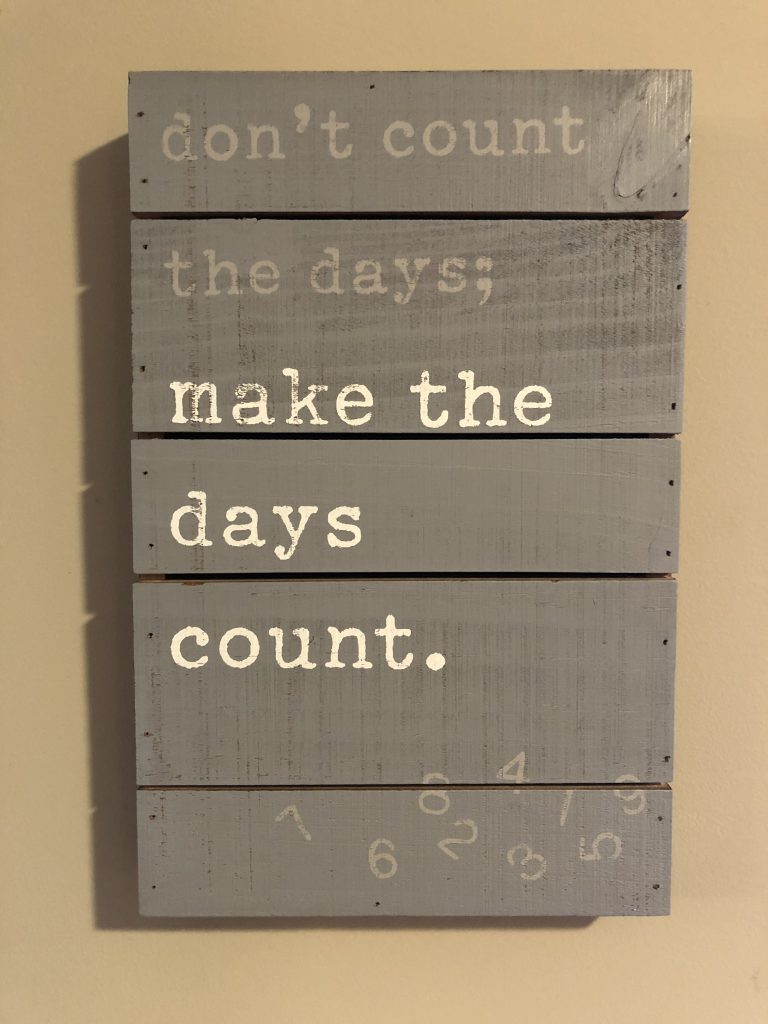Music is a powerful thing. It makes us want to sing, it makes us want to dance, it takes us back to where we once were, and it touches deep in our souls when we grieve. Music has a way of speaking to us in ways that plain words on a page cannot, and conveying emotion that otherwise might not be able to be understood. Music can speak to us at a subconscious level, and it can speak to us in different ways at different times of our lives.
Back in the 80’s, it was all about the mix-tape. Young adolescents like myself could record anything they heard on the radio on a cassette tape with just the press of two buttons. Capturing a perfect recording, one where you didn’t miss the beginning and the radio DJ didn’t talk all over it, was something you might spend a whole summer afternoon trying to do. Today we use playlists, but to me they are just fancy mix-tapes that are way easier to setup.
During my wife’s struggles with cancer, she built a playlist entitled Rachel’s chill-out playlist. It was something we would put on during hard times. This was a curated set of songs intended to help relieve the stress and anxiety that comes with intense struggle. Right after she passed, I shared this list of songs with my friends on Facebook, with the simple request that folks jam out to it as they processed her loss. I’ve since made it a YouTube playlist for easier sharing:
Similarly, music has played a significant role in my grieving process – to help calm me through extreme anxiety. Trying to go to a grocery store in the pit of grief can be incredibly hard. That may be something that is hard to understand if you haven’t been there, but if you have, then you know what I’m talking about. Thankfully, I got the bright idea to find some headphones I could wear anytime and anywhere. These headphones are something I still carry with me everywhere I go today. Anytime I feel stressed, or I’m about to walk into a crowded place, I’ll slip one in my ear and put on some music – it helps calm me.
My appreciation for music has grown several fold now having been a grieving widower. Outside of potentially movies, which can combine both music and imagery, there is simply nothing else that can convey the raw emotion of life quite as well as music. Over the last 18 months, I’ve heard new songs which I now cherish, I’ve discovered old songs I’d never heard, and I’ve heard songs I already knew in a totally new context – songs which I’ve heard for years, but never the way I hear them now today.
For example, I discovered this song about five months ago by Lee Fields & The Expressions:
What I love about this video is how it conveys his passion, his anger, and his hurt, but alongside still existing today. Before starting, he yells “king of the world!” as he gets set to perform on top of The Park Shelton in Midtown Detroit. It’s an interesting juxtaposition to the song he is about to belt out from his soul. Here are some of the words:
Seems like only yesterday, you were here smiling
Wish You Were Here, Lee Fields & The Expressions
Now you’ve gone away, but I know you in a better place
…
So I’m living life without you
And yes, it’s hard to go
‘Cause your memory means so much to me
And I need to stay strong
Bad as I want you here, it’s a shame to know
You’re not coming back
I’ll wait a hundred years, I’ll cry a million tears
Till you’re back, till you’re back, come back now
…
Time heals all wounds, gotta get myself up
Miss you again, over again
Love will not die
Walking the road, I see your eyes
I know you’re here, right by my side
I wish you were here
Another song, which I think most folks know, is Let it Be by The Beatles. What I didn’t know, was that the song was written by Paul McCartney about his mother that passed away from cancer when he was 14, and how his mother’s presence gave him those words in a dream.
So, I’ve been building my own playlist of music for the grieving as a YouTube playlist:
What I’ve found is that grief is not genre specific. There are amazing songs about grief in every single genre. While the songs sound drastically different, the emotions they convey speak the same universal language of loss.
One song in particular, holds a very special place in my heart – it’s where the name of this blog comes from, and it was released 45 days after my wife passed away. The song is ‘I Want You To Be Happier’ by Marshmello:
I give this song credit for helping me recall the last conversation I had with my wife before she passed – a conversation I could not recall for the first 6 months after her passing. This song I would hear in passing tapped into my subconscious, and helped unlock our final conversation together, so that I could recall it again and find peace. Music can be incredibly powerful, especially for the grieving.
Lately, I’ve been thinking
I Want You To Be Happier, Marshmello
I want you to be happier
…
I want to raise your spirits
I want to see you smile
Know that means I’ll have to leave
So, what I’m trying to do now is collect more songs for my playlist – to be exposed to more songs like these I’ve found already. If you have a favorite song for the grieving, won’t you share it with me in the comments? I hope some of these songs might help others in dealing with their grief one day – I want you to be happier.


